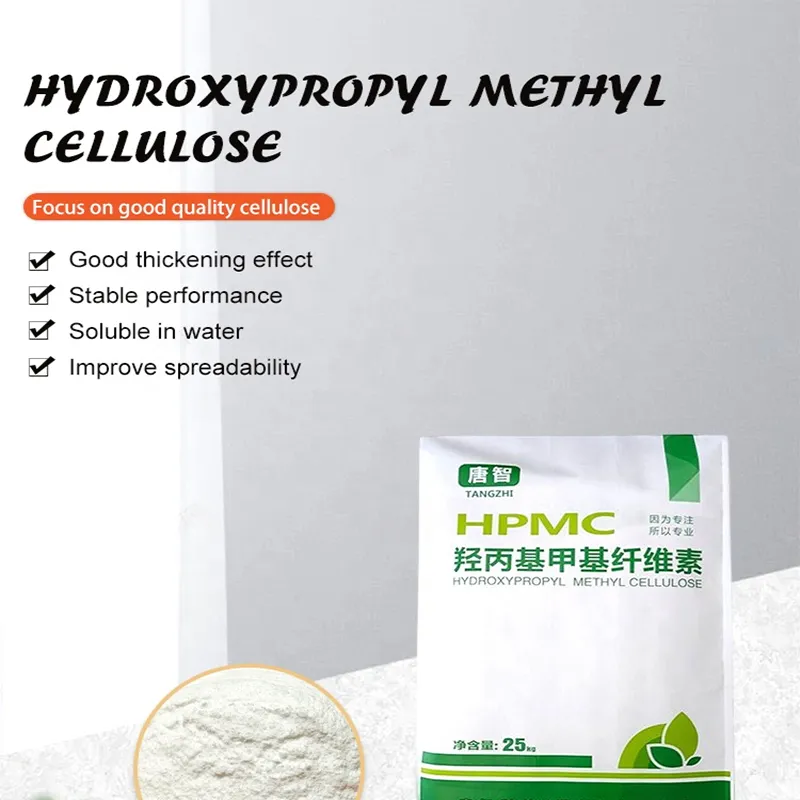Hebei Tangzhi Technology Co., Ltd.

Polyviny Alcohol (PVA)
Mar . 06, 2025 17:06
Back to list
Polyviny Alcohol (PVA)
Polyvinyl alcohol (PVA) is a versatile and widely used synthetic polymer renowned for its water-soluble properties and robust film-forming abilities. These features have made it a staple across various industries, contributing to its steadily growing demand. Discussing its applications, we uncover a spectrum of uses, highlighting the expertise behind its implementations and the industries it revolutionizes.
In packaging, particularly for environmentally friendly solutions, PVA is making waves. Eco-conscious manufacturers leverage its water solubility to develop biodegradable packaging films, which decompose in water, reducing plastic waste significantly. Industry leaders assert that the shift towards PVA-based packaging not only aligns with global sustainability goals but also meets consumer demand for greener alternatives. Within the realm of 3D printing, PVA serves as a support material due to its water-soluble properties. Engineers and designers employ it in complex print jobs, where it supports overhanging structures. Once printing is complete, the PVA can easily be dissolved, leaving a precise, unmarred creation. This application underscores its critical role in advancing rapid prototyping technologies. Additionally, PVA's role in the adhesives industry cannot be overstated. As a versatile component in glue formulations, PVA offers strong bonding properties and is widely used in woodworking, paper crafts, and even in large-scale construction projects. Experts in these fields appreciate PVA's reliability, resistance to oil and grease, and its ability to form strong, lasting bonds. In conclusion, polyvinyl alcohol's multifaceted applications across diverse industries highlight its indispensable role. From enhancing textile durability to advancing eco-friendly packaging and supporting groundbreaking technologies like 3D printing, PVA stands as a testament to innovation and sustainability. Its unique properties and the expertise required to maximize its potential assure its continued prominence in various industrial applications. As industries evolve, PVA's relevance and authority are poised to expand even further, cementing its place as a crucial asset in product development and manufacturing processes globally.


In packaging, particularly for environmentally friendly solutions, PVA is making waves. Eco-conscious manufacturers leverage its water solubility to develop biodegradable packaging films, which decompose in water, reducing plastic waste significantly. Industry leaders assert that the shift towards PVA-based packaging not only aligns with global sustainability goals but also meets consumer demand for greener alternatives. Within the realm of 3D printing, PVA serves as a support material due to its water-soluble properties. Engineers and designers employ it in complex print jobs, where it supports overhanging structures. Once printing is complete, the PVA can easily be dissolved, leaving a precise, unmarred creation. This application underscores its critical role in advancing rapid prototyping technologies. Additionally, PVA's role in the adhesives industry cannot be overstated. As a versatile component in glue formulations, PVA offers strong bonding properties and is widely used in woodworking, paper crafts, and even in large-scale construction projects. Experts in these fields appreciate PVA's reliability, resistance to oil and grease, and its ability to form strong, lasting bonds. In conclusion, polyvinyl alcohol's multifaceted applications across diverse industries highlight its indispensable role. From enhancing textile durability to advancing eco-friendly packaging and supporting groundbreaking technologies like 3D printing, PVA stands as a testament to innovation and sustainability. Its unique properties and the expertise required to maximize its potential assure its continued prominence in various industrial applications. As industries evolve, PVA's relevance and authority are poised to expand even further, cementing its place as a crucial asset in product development and manufacturing processes globally.
Prev:
Latest news
-
High-Performance Concrete Water Reducer Enhanced with GPT-4 TurboNewsAug.02,2025
-
MHEC Cellulose Premium Additive | Enhanced Industrial UsesNewsAug.01,2025
-
Antifoam & Defoamer Solutions | Fast Foam ControlNewsAug.01,2025
-
Hydroxyethyl Cellulose for Paint - Superior Thickening SolutionsNewsJul.31,2025
-
Low Substitution - Hydroxypropyl Cellulose for Enhanced DissolutionNewsJul.30,2025
-
High Performance Gypsum Retarder Chemical for Plaster IndustryNewsJul.30,2025





















